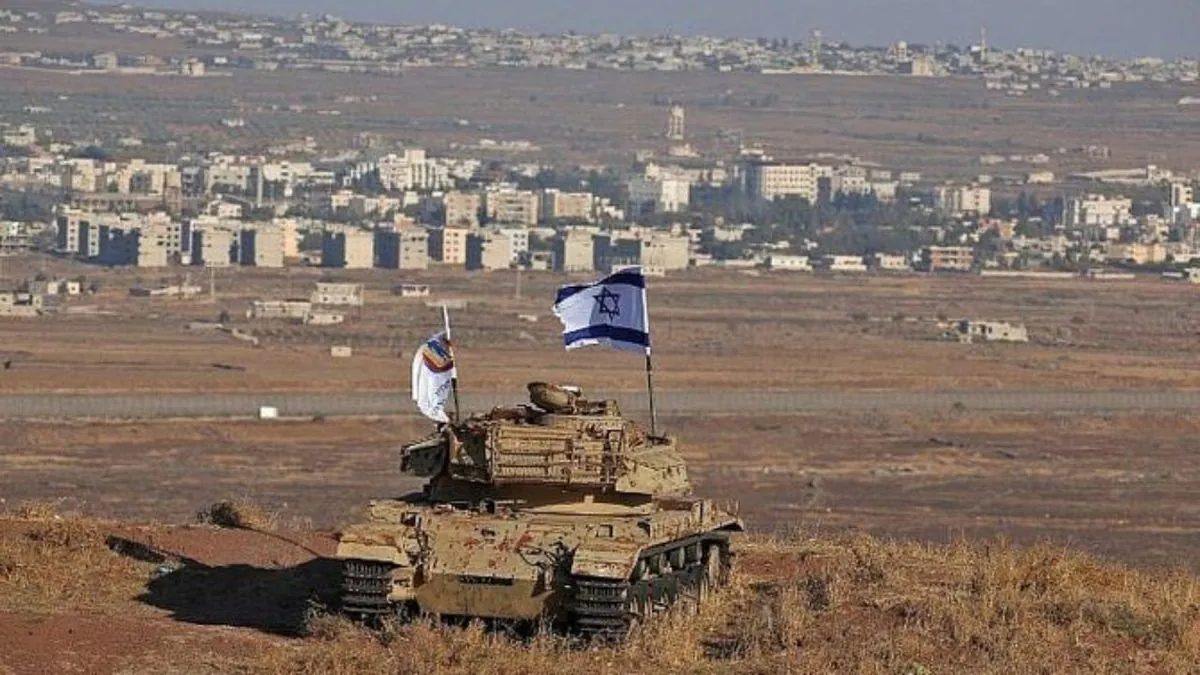In a recent escalation of tensions, Hezbollah launched a barrage of 50 rockets towards the Israeli-occupied Golan Heights on August 20, 2024. This attack resulted in damage to several Israeli homes and left one man in his 30s requiring medical attention for shrapnel wounds. One residence was severely impacted, engulfed in flames after a direct rocket hit.
The Golan Heights, a disputed territory between Israel and Syria, has been under Israeli control since 1967. The recent attack has intensified calls for improved security measures in the region. Uri Kellner, head of the Golan Regional Council, urged Israeli authorities to take action, stating the need to "restore security to the residents." The ongoing cross-border attacks have led to the internal displacement of approximately 60,000 individuals.
Hezbollah, a Lebanese Shiite political and military organization, claimed responsibility for the attack, citing it as retaliation for an Israeli strike in Lebanon the previous day. That operation resulted in one fatality and 19 injuries.
In response, the Israel Defense Forces (IDF) conducted overnight strikes on Hezbollah targets deep within Lebanese territory. The operation targeted military structures and weapons storage facilities in the Beqaa Valley, a fertile region in eastern Lebanon. The IDF reported "secondary explosions" following the airstrikes, suggesting the presence of significant weapons caches at the targeted sites. One Hezbollah member was reported killed in southern Lebanon during these operations.
"Secondary explosions were identified, indicating the presence of large amounts of weapons in the facilities."
The ongoing hostilities occur against the backdrop of faltering ceasefire negotiations between Hamas and Israel. Sources close to the talks have described the situation as "on the brink of collapse," with no clear alternative in sight. The current proposal, presented by Washington following a summit in Doha, Qatar, is considered the "strongest form of the deal to date," incorporating demands from both Hamas and Israel.
An official familiar with Israel's negotiation stance expressed concern about the potential consequences of failed talks: "If we don't get the deal, there's a chance that Iran attacks and this escalates into a full-blown confrontation."
While negotiations were scheduled to resume in Cairo on August 22-23, 2024, there are indications that the talks might be postponed to the following week. The situation is further complicated by internal criticism of Israeli Prime Minister Benjamin Netanyahu for making public statements about sensitive negotiation points, such as Israel's insistence on controlling the Philadelphi Corridor, a narrow strip of land along the Gaza-Egypt border.
A US official, speaking to Axios, cautioned against such "maximalist statements," deeming them unconstructive for achieving a ceasefire agreement. Meanwhile, Hamas has rejected the American ceasefire proposal, claiming it includes Israeli demands not present in the initial outline presented by US President Joe Biden in May 2024.
As tensions continue to escalate and negotiations face significant hurdles, the international community remains concerned about the potential for wider regional conflict. The situation underscores the complex interplay of local, regional, and international interests in the ongoing Middle East peace process.
